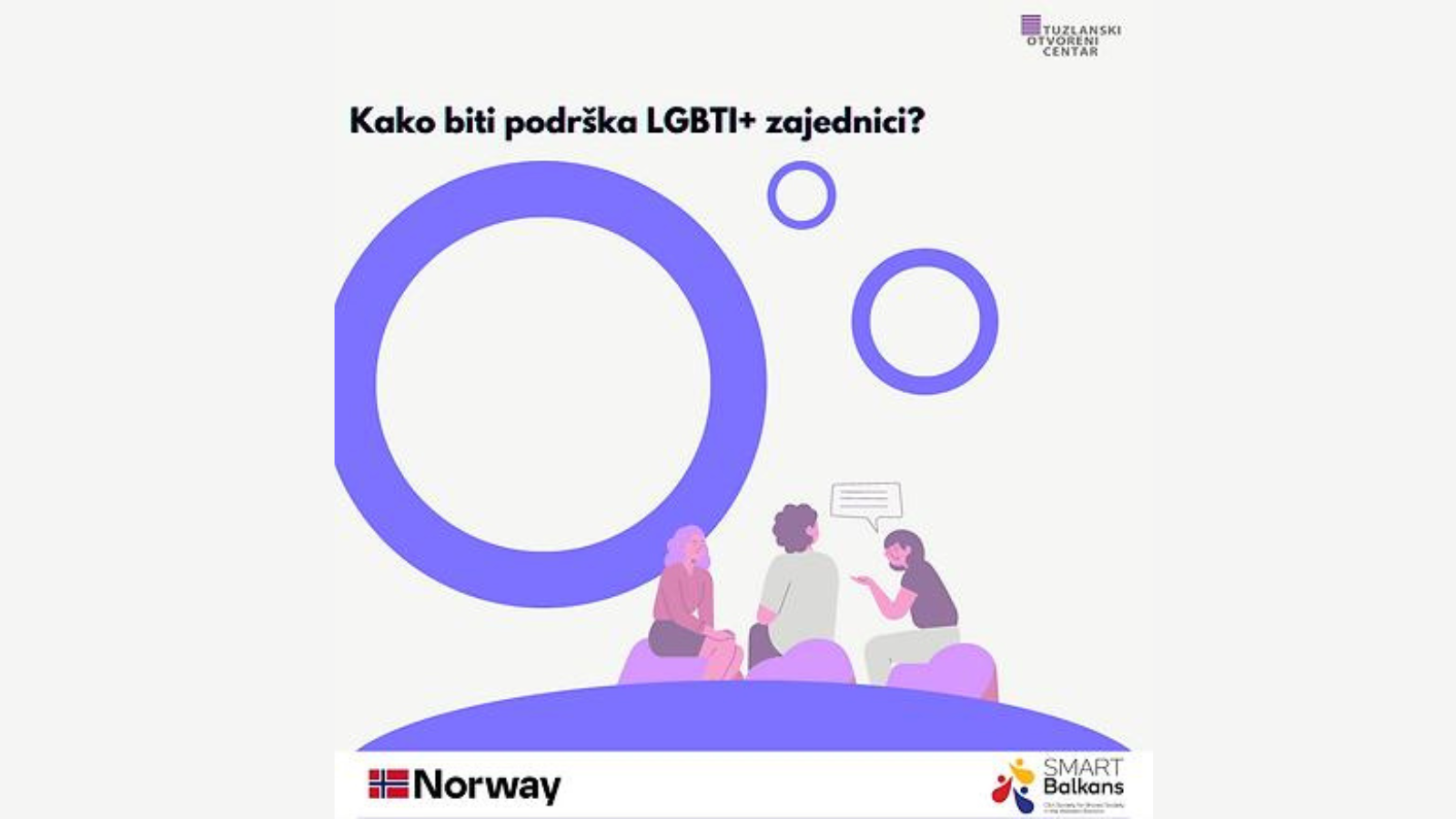How should I react when someone tells a homophobic joke?
Many people believe that jokes are harmless and are upset by what they perceive to be politically correct attitudes from those who are offended by inappropriate humor. Labeling a belief as politically correct is a subtle way of supporting the status quo and resisting change.
Most people who tell jokes about an oppressed group never think about how those jokes perpetuate stereotypes, or how they teach and reinforce prejudice. Someone telling jokes about LGBTI+ people probably assumes that everyone present is heterosexual, or at least that everyone shares their negative attitudes towards LGBTI+ people. However, most people do not tell jokes to intentionally hurt or embarrass others and will stop if they realize that this is a consequence of them.
Reacting assertively in such situations is difficult, but not responding sends a silent message of agreement. Silence is tantamount to condoning the telling of such jokes.
It is important to remember that young people, especially those who are questioning their own sexual identity, will observe who laughs at such jokes and may internalize a painful message. In some cases, you can mention the inappropriateness of a joke here and there and express your displeasure. In other situations, the person can then be taken somewhere where you can talk privately about the weight of the jokes told. Try to express your concerns about the joke in a respectful manner.
How can I respond to homophobic and transphobic attitudes?
If you disagree with a negative statement someone has made about LGBTI+ people, the assertive thing to do is say so. Again, silence expresses consent. Remember what your goal in answering is: not to start an argument or stir up hostility, but to try to increase understanding. Disagreement can be polite and respectful. Share your views without accusing or criticizing. You simply present a different way of thinking about the subject. It can be difficult to speak publicly about supporting LGBTI+ people. You may fear that others will question your sexual orientation, morals and values, or that you will be ostracized. It’s easy to forget that your open expression can also have positive effects.
How can I respond to people who oppose LGBTI+ people for religious reasons?
There is usually no way to change the minds of individuals who base their negative beliefs about LGBTI+ people on strict religious beliefs. However, respecting their right to believe as they wish, you can share some information with them. It may be useful to point out that identifying as a religious person is not necessarily incompatible with supporting LGBTI+ people. There is great diversity among religious communities regarding beliefs about non-heterosexuality and trans identity. Additionally, there is much disagreement about the biblical basis for condemning LGBTI+ people, which runs through other Abrahamic religions as well.
Many religious scholars argue that passages of the Bible that are said to refer to same-sex sexuality have been misinterpreted. Some scholars share their aspects when it comes to the interpretation of the Qur’an, which are of course different from those that have been represented for decades.
It is also important to point out that while individuals are entitled to their personal religious beliefs; those opinions should not be used to deny LGBTI+ people equal treatment under the law, because we live in a secular state after all.
New questions will always arise and new stories will be opened when it comes to any community, so not only LGBTI+. It is important that with every approach we make to a community, and even a smaller community within the LGBTI+ community, we show respect and openness. If we believe that we are guided by our word and that we already know everything, then it is time to reconsider our approach. Nothing stays the same forever. It is important to constantly come into contact with changes in order to develop a greater degree of openness and sensibility, because an open mind has the ability to understand and develop. A mind full of fear has no room for dreams.








